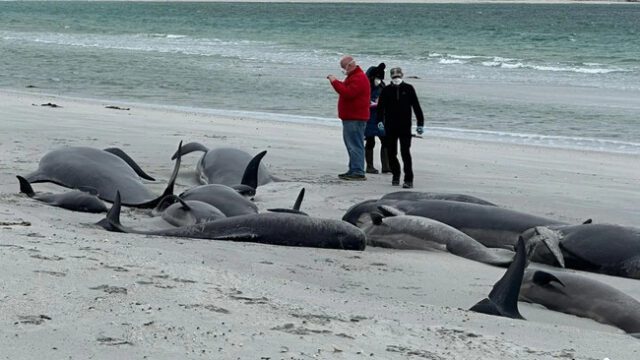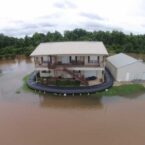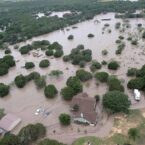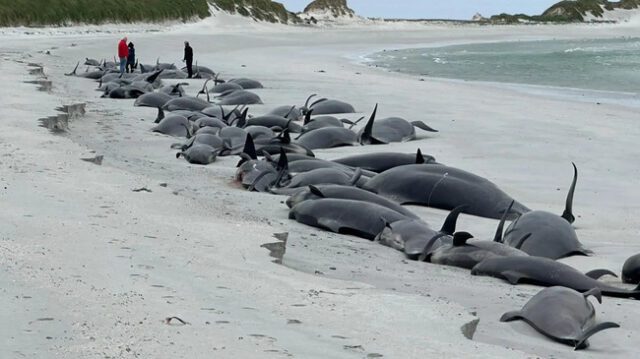
A tragic incident unfolded on the shores of Orkney when a pod of 77 pilot whales stranded on Tresness Beach, leading to what is considered the largest mass stranding in Scotland in decades. The British Divers Marine Life Rescue (BDMLR) found that 12 of the whales were still alive when they arrived but ultimately decided to euthanize them after refloating efforts proved unsuccessful. The stranded pod included whales of varying ages and sizes, from calves to adults up to seven meters long. The exact cause of the stranding remains unknown, but experts speculate that one whale might have encountered trouble, prompting the rest to follow. The public is being asked to avoid the area while post-mortem examinations are conducted to gain further insights into the cause of this unfortunate event.
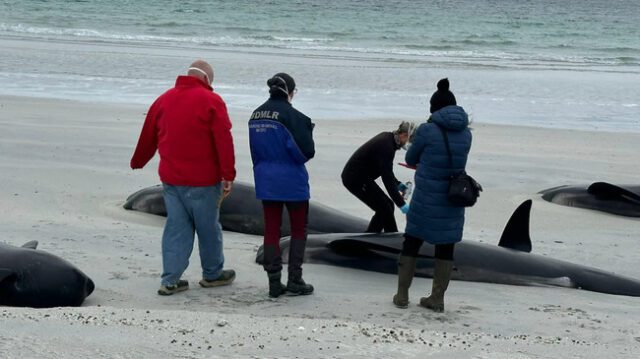
The incident has highlighted a concerning trend of increasing mass strandings in Scotland, with experts noting a rise in both frequency and scale over the past decade. Andrew Brownlow of the Scottish Marine Animal Stranding Scheme mentioned that such events were once rare but have become more common, potentially due to a higher number of marine animals or increased exposure to environmental hazards. This recent stranding follows other notable events, such as the 55 pilot whales that were stranded on Lewis last year and the largest recorded UK stranding in 1927 when 126 false killer whales perished. Rescue efforts on Sanday were hindered by challenging conditions, including soft sand that made it difficult to right the whales. Authorities are now deliberating on the most appropriate way to dispose of the bodies, with considerations for public health and environmental impact.
